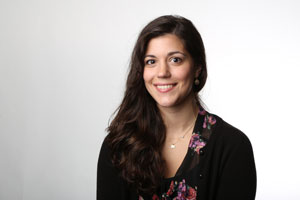Opinion: Saying no is the best (and worst) thing you can do
October 6, 2013
When put together, the letters “n” and “o” create one of the most powerful words we have in our arsenal. That tiny word separates the acceptable from the unacceptable, what we will and will not stand for and can even spark a revolution. Saying no is one of the most powerful tools we have. And in our daily lives, saying no holds even more weight because it has the potency to change our path. But because this word has that kind of power, it’s important to use it wisely.
Particularly as college students, we are constantly in the process of figuring out what we want to do after graduation, so we say yes to everything. We join multiple clubs and organizations to build our resumes, overbooking our schedules to the point of exhaustion. We do this because we believe it will pay off, that an employer will look at our college careers, commend us for taking on so many responsibilities and hire us on the spot. But there is always a trade-off.
First, by saying yes to everything, and using no too sparingly, we deprive ourselves of time to identify what we are truly interested in. I am guilty of saying yes to any opportunity that comes my way, almost instantaneously. I fear that if I don’t, I will miss out on an important opportunity that could propel my future career. But how often does that actually happen? If I had taken the time to consider my other commitments and my personal interests, maybe taking on that commitment was superfluous. When we take on too many commitments, and later realize we can’t possibly handle them all, this puts us in an uncomfortable position of having to back out and say no. This is why it’s important to understand the power of this word and the effect it can have on our lives and the lives of others.
Although the word opportunity has its own tempting aura, we have to stop being “yes” people and start, at the very least, weighing the pros and cons of the opportunity before saying yes. As cliche as it may be, I am constantly reminding myself that quality over quantity is better not only for my future but also for my own health and happiness.
If I can focus on a few responsibilities and perform these well rather than multiple responsibilities and perform those poorly, that shows future employers I am focused, responsible and capable of identifying my strengths.
There is something to be said, however, of the pitfalls of saying no. If we are too quick to say no, we could potentially be turning down an opportunity to advance our careers. This is where we need to zip our lips and start analyzing. I have been too quick to say yes and too quick to say no, and I am beginning to learn how crucial those two words will be to the rest of my life. When I use yes or no, I want to be certain I am using it with the power of reason and confidence behind it. We can only handle so many responsibilities, but we also have to be vigilant for irreplaceable opportunities. It’s a delicate balancing act that we have to learn how to control and use to our advantage.













